Reverse Osmosis & Water Treatment in Suriname
CHUNKE projects of Reverse Osmosis Water Treatment in Suriname including different types of water treatment systems.
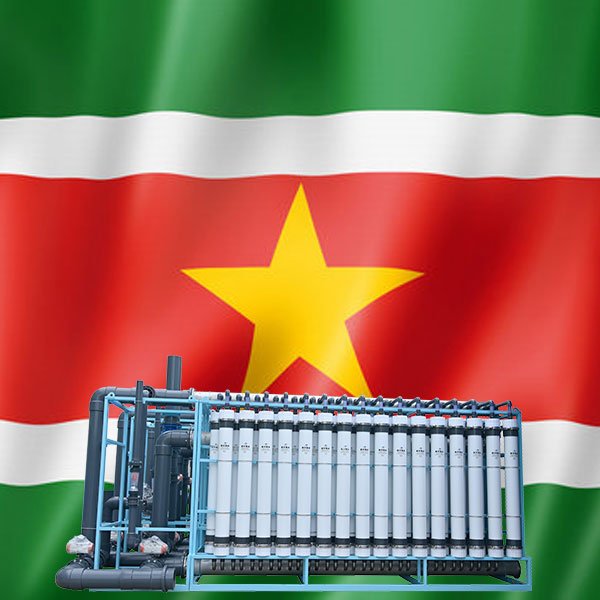
Suriname, known officially as the Republic of Suriname, lies in northern South America[User]. Bordered by the Atlantic Ocean, it also neighbors French Guiana, Guyana, and Brazil[User]. Covering less than 165,000 square kilometers, it’s South America’s smallest country.
Approximately 612,985 people call Suriname home, most being African and Asian descendants brought by the Dutch Empire and Republic. They primarily live on the northern coast, especially in Paramaribo, the capital city. Interestingly, Suriname ranks among the world’s least densely populated countries. Its location just north of the equator gives it a tropical climate and expansive rainforests. These forests not only fight climate change but also contribute to carbon negativity. As a developing nation, Suriname utilizes its rich natural resources like bauxite, gold, and petroleum, along with agricultural products.
Total Renewable Water Resources in Suriname
In 2020, renewable water resources per capita for Suriname was 168,760 cubic meters per year. Renewable water resources per capita of Suriname fell gradually from 268,121.2 cubic meters per year in 1971 to 168,760 cubic meters per year in 2020.
Renewable surface water : 99 billion cubic meters per year
Renewable groundwater :90 billion cubic meters per year
Renewable water resources per capita :168,760 cubic meters per year
Meanwhile, CHUNKE provides wide range of filtration and economical solutions based on the Suriname water resources. So, our water treatment in Suriname becomes more popular accordingly.
- Surface water is water from river, lake which can be treated using different methods, such as Ultrafiltration Systems, Brackish Water RO accordingly.
- Desalination can be used for water from ocean, or sea source, which can be treated using Sea Water Reverse Osmosis Systems; Desalination Systems
- Ground Water or brackish water is from water located in the pore space of soil and rock “Borehole well”, which can be treated using Reverse Osmosis Systems, Borehole Water Filtration Systems, Well Water Filtration Systems, Chemical Dosing, UV Water Sterilizer accordingly.
- Government water supply, which could have high level of hardness or high level of chlorine, can be treated with Water Softener System, Media Water Filters.
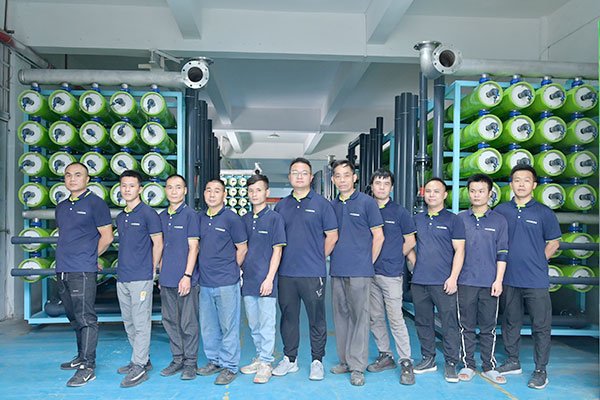
CHUNKE Projects of Water Treatment in Suriname
Meanwhile, CHUNKE designs and produces water treatment systems that meet the World Health Organization requirements. Our pumps, dosing pumps, reverse osmosis membranes, electronic components, and drives are all world-renowned suppliers. So, our water treatment in Suriname is suitable for drinking.
With over 15 years of expertise, CHUNKE has established itself as a global provider of B2B water treatment solutions . Catering to a variety of applications and industries, we offer an extensive selection of all types of reverse osmosis, ultrafiltration, electrodeionization, and water treatment systems to meet your industrial needs accordingly. Furthermore. our broad global experience in engineering and manufacturing enables us to pre-engineer and customize water treatment and reverse osmosis systems . This proficiency, moreover, allows us to meet a wide array of customer requirements and specifications, thus strengthening our position in the industry.
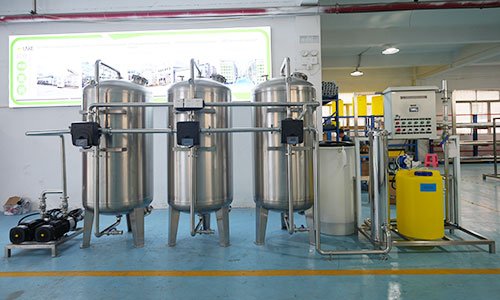
7T Pre-Treatment
Equipment
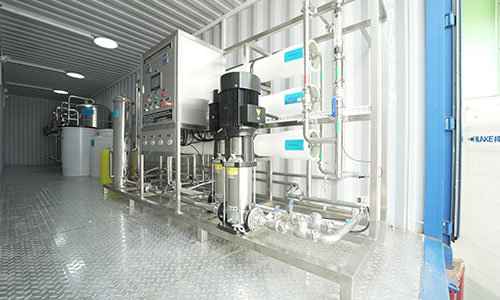
6T Container Reverse Osmosis Equipment
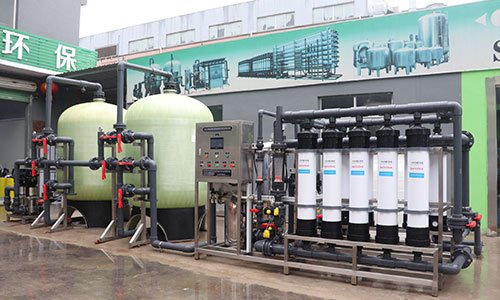
20T Ultrafiltration System Equipment
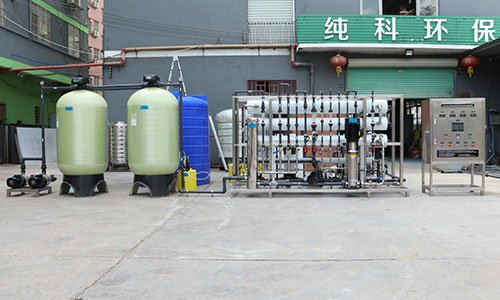
5000L Brackish Water
Equipment
The Need for Water Treatment in Suriname
Many nations, including Suriname, grapple with water-related issues like scarcity and contamination. The World Bank reveals 80 countries struggle with water shortages, indicating a global crisis. Furthermore, an astounding 2 billion people don’t have access to clean water. Consequently, this situation is far from ideal. The World Health Organization also states that 1 billion individuals lack enough water for their basic needs. These alarming statistics highlight the pressing need for water treatment solutions, particularly in countries like Suriname.
Suriname water sources
In Suriname, surface water is a primary resource, gathered from rivers, lakes, and freshwater wetlands . This water can be purified using ultrafiltration systems or brackish water reverse osmosis . Furthermore, groundwater, another vital source, often needs treatment as well . Notably, ocean water, though saline, can be desalinated using seawater reverse osmosis systems for potable use . In essence, each water source demands a tailored treatment method for optimal use and consumption .
Groundwater exists in the pore space of soil and rock. You can purify this water with reverse osmosis systems, chemicals, or UV light sterilization. However, government water supplies may contain high hardness or chlorine levels. Therefore, they need treatment. So,water softener systems and media water filters serve as effective solutions. Thus, knowing your water source is key to selecting the appropriate treatment method.
Reverse Osmosis: A Game-Changer in Water Treatment
Reverse osmosis, or RO, is an effective water treatment method. It utilizes a semi-permeable membrane under pressure to remove contaminants. The principle is simple yet powerful. So, only water molecules pass through the membrane. Larger particles, like salts and bacteria, are blocked. Consequently, this technique ensures cleaner, safer water for consumption.
How Reverse Osmosis Works
In, Suriname, different water sources require specific reverse osmosis systems to ensure effective water treatment. Surface Reverse osmosis systems consist of several key components, including a pre-filtration system, a high-pressure pump, a semi-permeable membrane, and a post-filtration system. Let’s take a closer look at each of these components:
- Pre-filtration system: This system removes larger impurities and sediments from the water before it enters the reverse osmosis membrane. It typically consists of filters that capture particles down to a certain size.
- High-pressure pump: The pump generates the necessary pressure to push the water through the semi-permeable membrane. Meanwhile, this pressure is essential for the reverse osmosis process to occur effectively.
- Semi-permeable membrane: The heart of the reverse osmosis system, the membrane acts as a barrier that allows only water molecules to pass through while blocking contaminants. So, the size of the membrane’s pores determines the level of filtration and the types of contaminants removed.
- Post-filtration system: After passing through the membrane, the water goes through another set of filters to further remove any remaining impurities. This improves the quality of the treated water and ensures its safety for consumption.
Applications of Reverse Osmosis in Suriname
Reverse osmosis systems have found widespread applications in Suriname for various water treatment needs. Meanwhile, they are particularly effective in providing clean and safe drinking water, as well as meeting the requirements of industries and commercial establishments.
Some common applications of reverse osmosis in Suriname include
- Residential and commercial drinking water systems: Reverse osmosis systems are commonly used in homes, offices, and restaurants to provide purified drinking water. These systems ensure the removal of contaminants such as chlorine, bacteria, viruses, and heavy metals, resulting in high-quality, safe drinking water.
- Industrial water treatment: Industries in Suriname, such as manufacturing, food processing, and pharmaceuticals, rely on reverse osmosis systems to meet their water treatment needs. These systems are capable of removing a wide range of impurities, including dissolved solids, chemicals, and organic compounds, ensuring the water meets the required quality standards.
- Seawater desalination: Suriname’s coastal location makes seawater desalination an attractive option for increasing the water supply. Reverse osmosis systems are used to desalinate seawater, removing the salt and other impurities to produce freshwater suitable for various applications.
- Wastewater treatment and reuse: Reverse osmosis is also employed in treating wastewater, allowing for the safe reuse of water in irrigation, industrial processes, and other non-potable applications. This helps conserve water resources and reduces the strain on freshwater supplies.
Choosing the Right Reverse Osmosis System
In Suriname, selecting a reverse osmosis system requires careful consideration. First, prioritize water quality. Second, don’t overlook capacity requirements. Lastly, maintain the system for reliable, long-lasting operation.
CHUNKE, a global power in water treatment, provides a plethora of reverse osmosis systems adhering to World Health Organization standards . With a rich experience spanning over 20 years, CHUNKE excels in crafting customized water treatment systems . These systems cater to a diverse range of applications and industries. Thus, CHUNKE is a go-to source for industrial water treatment solutions in Suriname and beyond .
Chunke is Trusted Water Treatment Supplier from China
Reverse osmosis water treatment plays a crucial role in addressing the water challenges faced in Suriname. By utilizing advanced RO systems and complementary water treatment technologies, clean and safe drinking water can be made available to both military personnel and the local population. Wastewater treatment solutions further contribute to environmental sustainability and public health. Applying the lessons learned from previous water supply operations. In conclusion, Suriname can enhance its water treatment efforts and ensure a sustainable supply of clean and safe drinking water for its people. With the implementation of innovative and efficient water treatment solutions, reverse osmosis continues to be a valuable tool in the pursuit of clean water in Suriname.
Chunke Water Treatment‘s expertise in producing high-quality reverse osmosis systems has contributed to improving water treatment capabilities in Suriname. So, their reliable and efficient RO plants have been implemented in various projects across the country, ensuring access to clean and safe drinking water.
